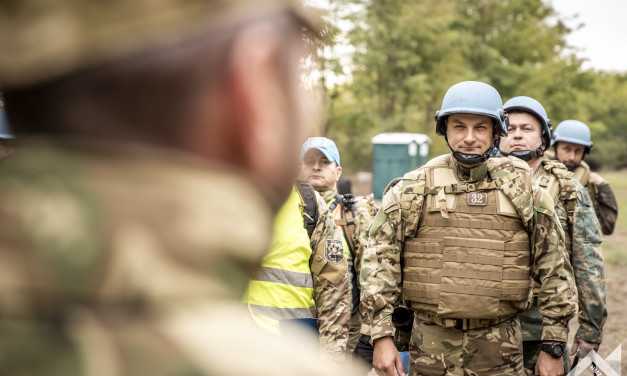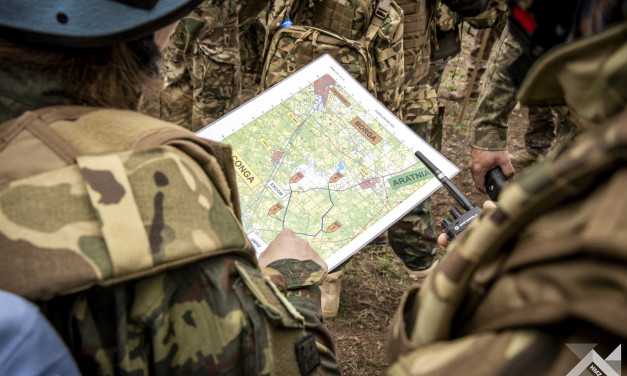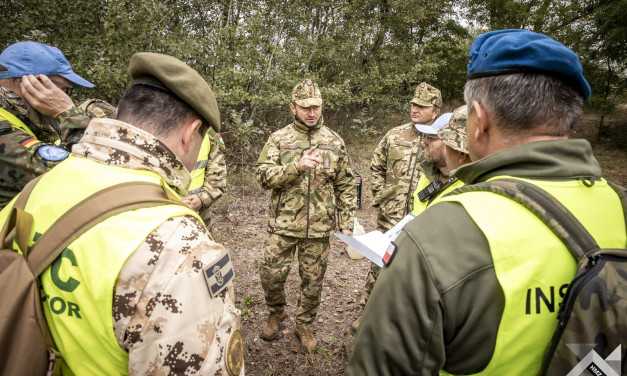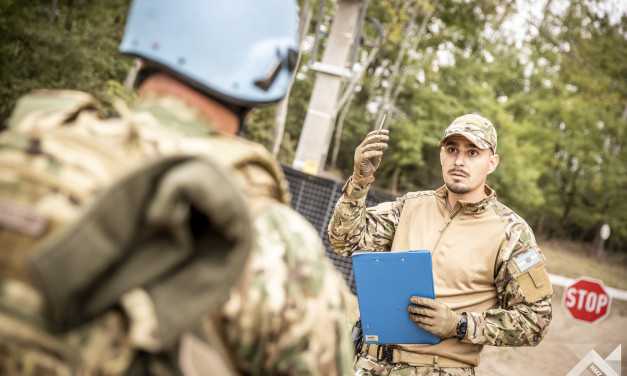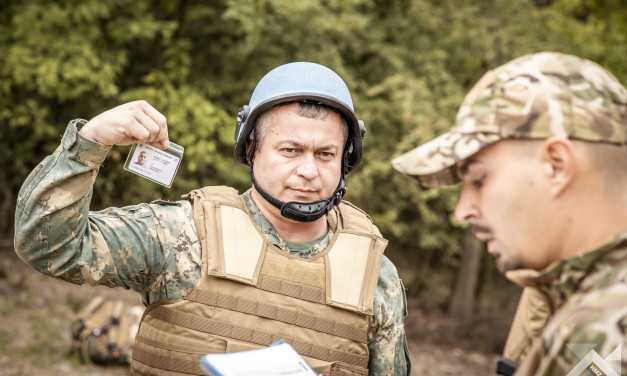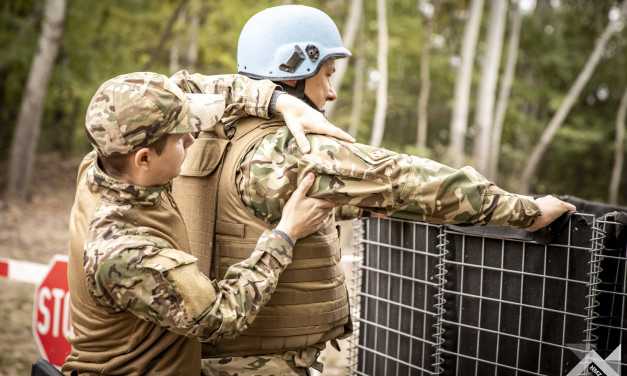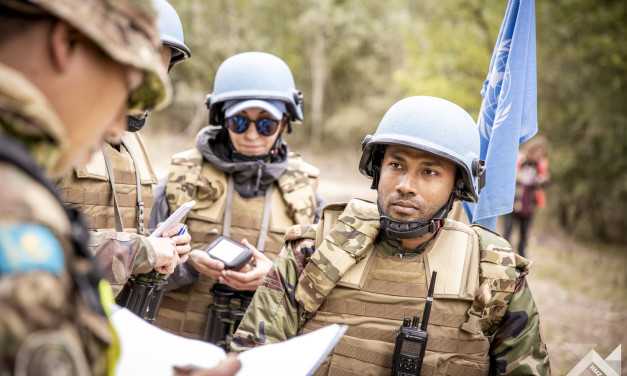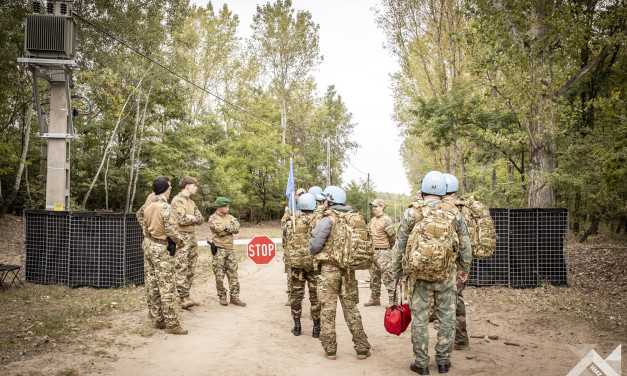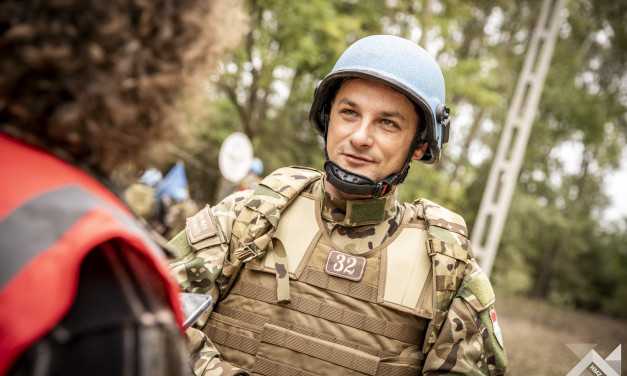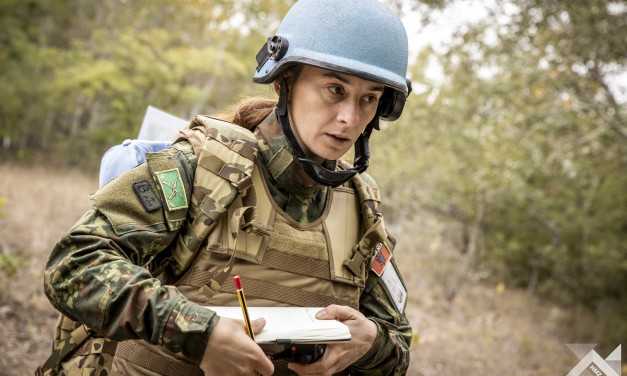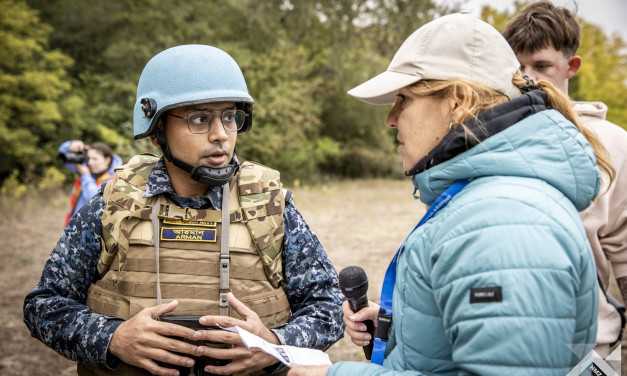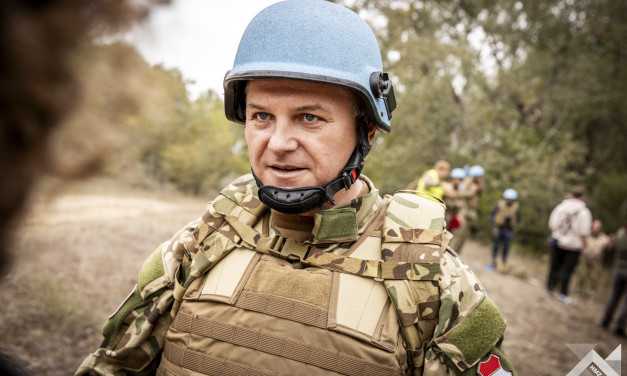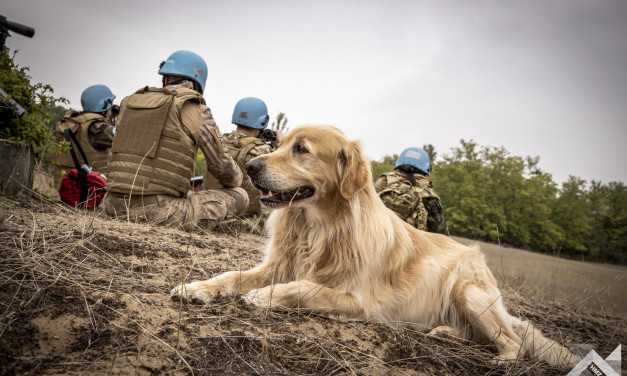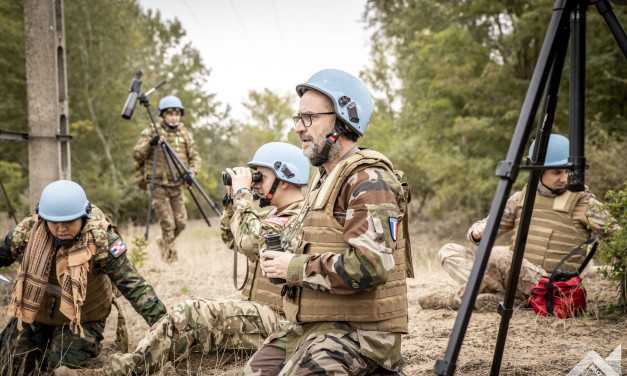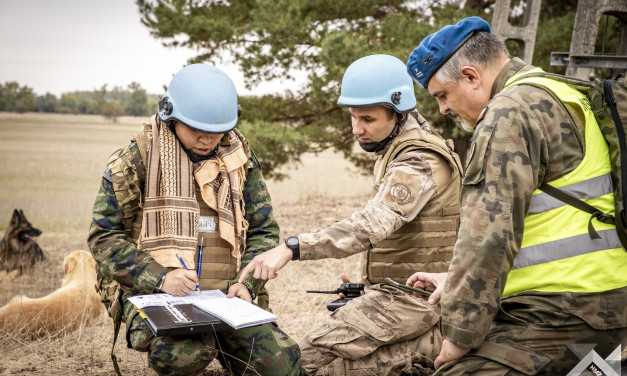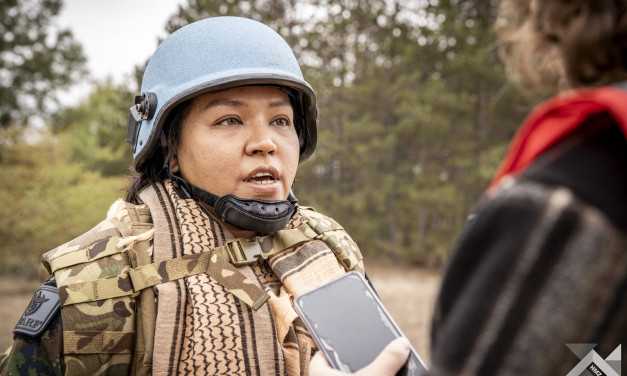From Hungary to UN peace missions
Text: Marcell Burillák | Photo: Dávid Fabók | 13:48 October 10, 2025Ridden with ethnic conflicts, the Republic of Conga is coming to life after a civil war. Public order is being restored, but the leaders of the country call for the assistance of UN peacekeeping forces – this is the fictitious scenario of the International Military Observers’ Course running in Szolnok, Tázlár and Kiskunhalas. Between 29 September and 17 October, 22 servicemembers from 13 countries are participating in the pre-deployment training course.
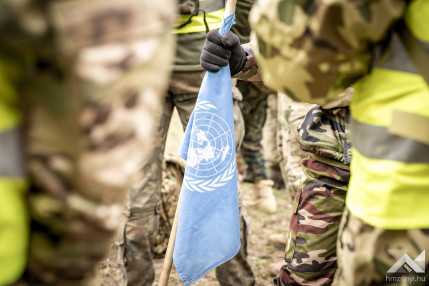
This course is compulsory for all those who are designated military observers in UN peace missions – stated Major Szabolcs Bakk. According to the fictitious scenario of the just starting patrol drills, the troops enter the conflict zone designated in the area of Kiskunhalas as peacekeepers. They set up an observation post, gather information, provide medical care for the wounded if needed, and negotiate with the local government.
The course director told defence.hu that the course running with the participation of four Hungarian students is structured along UN guidelines. This year, for example, the technique of drone monitoring has been woven into the curriculum, while next year, the course participants will have the opportunity to use tools imitating hand-grenade throwing as well – revealed the Head of the HDF Military Training Centre Operations and Planning Branch.
The most important thing, however, is to acquire communication skills. Róbert Bán, the mayor of Tázlár, for example, received the students as a fictitious village leader of Conga, so they had opportunity to hone their negotiating technique during the meeting. At the September meeting of the servicemembers and the head of the local government, they discussed the food and water supply of the village, its infrastructure, the relaunch of agricultural production and the public security situation.
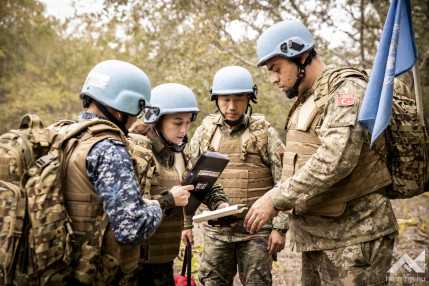
“Following the official visit in the morning, we were practicing communication with other armed forces” – said Captain Gábor Csoma, after the policemen of the imaginary Republic of Conga lengthily inspected the fictitious UN patrolmen’s credentials. – “On other occasions, we must be able to speak the same language with local citizens, too. Our task is to prevent recurring clashes among the citizens of Conga, Borga and Aratnia. We are here to observe, negotiate and patrol”.
The captain from the 4th Military Augmentation and Recruitment Office of the HDF 2th Territorial Defence Regiment emphasized that not only career soldiers can apply for the military observer job, as the possibility of service abroad is also open to reservists. First of all, one needs to acquire negotiating techniques and language proficiency to became an effective UN peacekeeper.
“We were patrolling when we heard cries for help. We immediately rushed to the site. It turned out that the enemy forces offered local people money for explosives they had found, but actually, they were herding the civilians onto a minefield” – said Lieutenant Colonel Dr. Zoltán Nyikes, Operations Officer, HDF Transformation Command about one of the tasks. “Upon arriving on the scene, we secured the area and called a medevac helicopter to evacuate the wounded.”
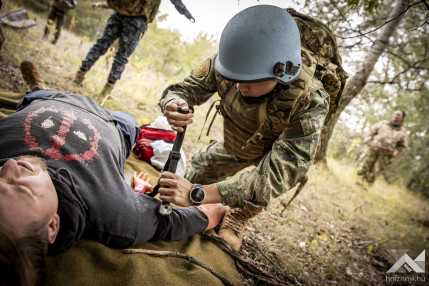
During the three-week course, the role of the civil populace was played by cadets of Árpád Dékáni Technical School of Kiskunhalas Vocational Training Centre. This summer, after reaching 18 years of age, the graduating students completed the reservist training. Apart from classes on the subject “national defence”, they regularly undertake to do war grave care and parading tasks, and also enter patrol competitions – revealed their form teacher, Géza Szabó.
The significance of the International Military Observers’ Course in Szolnok, however, is not only signaled by its modern curriculum or its long-standing past history (this autumn has already seen the launch of the 46th course). It is the number of participating nations that lends true credence to the course. So far, servicemembers arrived here from approximately 100 UN member states to participate in the Hungarian pre-deployment course to be completed before going on mission abroad. This year, among others, Polish, German, French, Turkish, Albanian and Thai uniformed students arrived in Hungary.
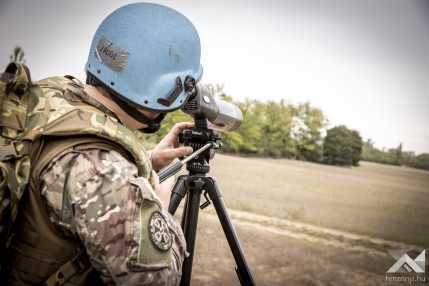
“While at the observation post, we used high-resolution spotter binoculars to monitor the area where the enemy forces were training in spite of the concluded ceasefire and from where they flew drones over our base. It cannot exactly be known what the intention behind the arrival of these assets is, but we observed them and reported their size, speed and activity” – said Major Nanthiya Thongkanaruk.
The Thai soldier told us that he had arrived to attend the Hungarian course primarily because of the exchange of lessons learned. “I can share the knowledge gained here with my comrades at home. Naturally, from a practical point of view, it is also because of the regulations that participation in this course is indispensable for anyone preparing for a UN mission”.
